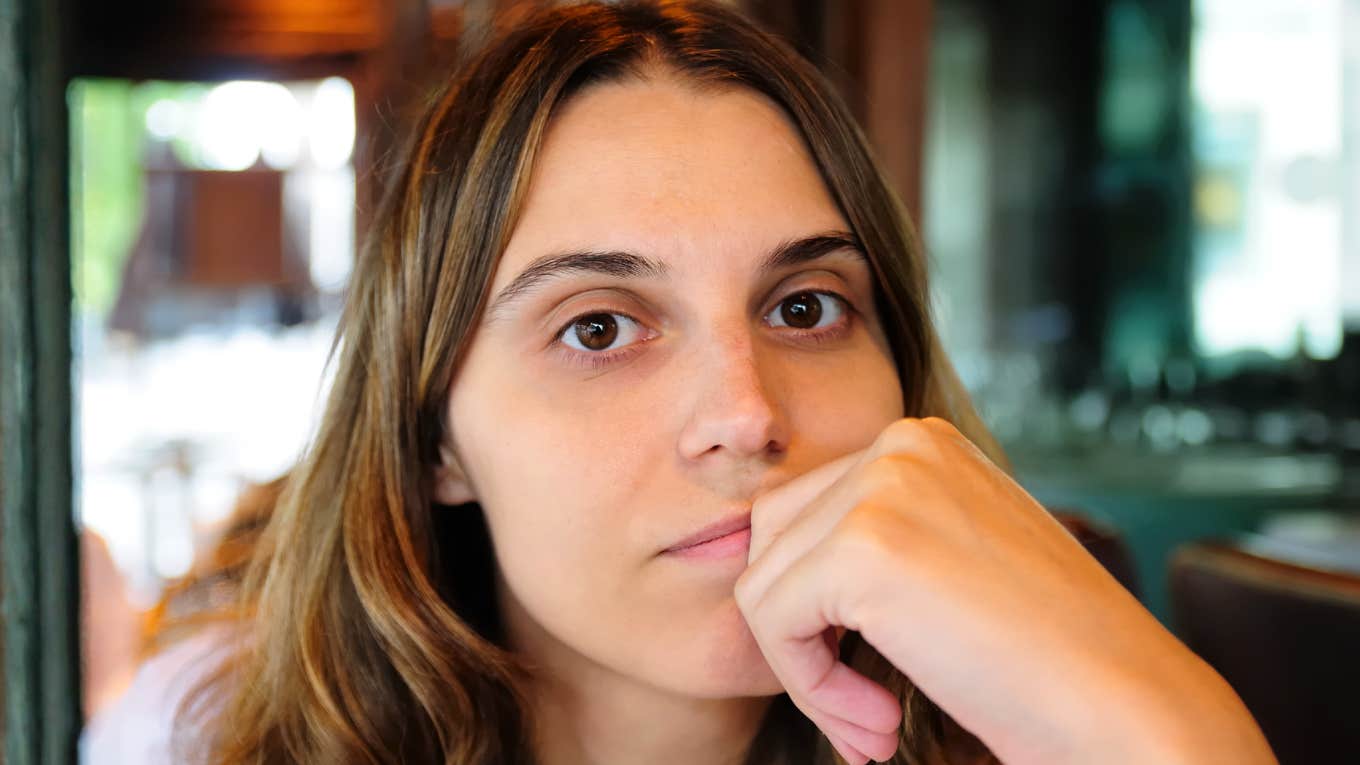3 Simple Things We All Wait Way Too Long To Do For Ourselves In Life
 ilolab | Shutterstock
ilolab | Shutterstock One of the toughest spaces to be in is the spot where you have to figure out how to forgive yourself. When you feel guilty about something you recognize you did wrong, and that hurt someone else, but that person won’t forgive you. How do you move forward?
Everyone makes mistakes and, yes, some of them can be extremely hurtful. When you care about someone, their choice not to forgive you can keep you up at night and even affect your mental health. Even if the person you deeply hurt is a stranger, knowing that you can’t go back and undo the damage can keep you stuck in a negative thought spiral.
It’s important to know that you can learn from your mistakes. You, as a growing spiritual being, are separate from the poor choices you make. You are not the worst mistake you ever made. A poor choice does not define you as a soul — it gives you a human experience in your past that you can now choose to do something with now and for your future.
Here are 3 simple things we all wait way too long to do for ourselves in life:
1. Making peace with not being forgiven
 shabnam raeisi / Unsplash
shabnam raeisi / Unsplash
It may not feel great, but it’s important to remember that it's their choice to feel however they do. Who are you to tell anyone how they should feel? Acceptance means choosing to "be with" the reality of someone’s emotions, even if they're positioned against you. It doesn’t mean that you like this choice.
It also doesn’t mean you need to accept any attack that may go along with those emotions, either. Be mindful not to accept ill treatment from anyone. Your own feelings of guilt may tell you that you deserve it, but you don't.
Their choice not to forgive is something they need to work out within themselves. It has nothing to do with you. Likewise, you have a choice to forgive yourself that has nothing to do with anyone else. If you resist acceptance by remaining guilty, shameful, or upset, notice what’s happening. Whatever you resist will persist, and it creates further unnecessary stress in your mind and body.
Acceptance is a state of being. Deep down, there’s a sadness and remorse that reflects the love you have for the relationship that has been torn apart or the hurt that resulted. This is different than unhappiness from the disappointment of someone’s choice not to forgive you.
Owning your vulnerable emotions reflects your values for the upheaval you may have caused. By allowing yourself to feel your deeper emotions, you allow your true self to heal. It opens the space for new beginnings. "The past is the past" doesn't mean forgetting. It means remembering it in a way that allows you to move on.
Research shows that when we experience rejection, our brains naturally trigger emotions like hurt, shame, and anger because we're evolutionarily wired to care about social connections. The healthiest path forward is accepting that other people's feelings about forgiving you are completely valid and separate from your own ability to heal and move on, even when their choice not to forgive really stings.
2. Learning to forgive yourself without someone else's permission
This belief keeps you hostage to negative emotions and thought patterns. The condition of "only if I’m forgiven, can I forgive myself" is something that's totally manufactured internally. Notice what happens when you separate these two thoughts and allow yourself to have your own independent experience.
Someone chooses not to forgive you. You choose to forgive yourself. Both can happen on their own, which gives you the space for your own authentic experience. Taking 100 percent responsibility to create your life means letting go of what others choose to think.
For instance, if you did actually intend to hurt someone in the past, changing your intentions going forward is what’s being asked of you in your remorse. This is all that’s necessary. The majority of people don't wake up in the morning holding ill intent to wreak havoc in the lives of others.
You might say your choice of words or actions is "right," given that it made sense at the time with the information you had then. If you later realize that something you did was "wrong" and you have regret or remorse, it means you’ve grown.
Growth can take many forms and doesn't depend on the forgiveness of the one you trespassed against, especially when you have no control over their responses. You can move in the direction of your higher self by allowing for your own independent experience while allowing someone else to have theirs.
Studies show that self-forgiveness improves your well-being, reduces depression and anxiety, and increases self-esteem completely on its own, whether or not anyone else forgives you. Your ability to forgive yourself and move forward doesn't require anyone else's permission or approval.
3. Being less hard on yourself
 SABBIR BHUIYAN / Unsplash
SABBIR BHUIYAN / Unsplash
Your inner judge says loudly, "You should have..." or "You shouldn’t have..." Your "shoulds" can be very dangerous. It means you're trying to alter reality, and that keeps you stuck in guilt and shame. Not forgiving yourself means you're judging and self-condemning. Judging is a mysteriously dark force of fear that keeps you out of your own light.
The secret to letting go and finding the inner peace of self-forgiveness requires noticing your inner voice is being judgmental and finding your way to compassion. Once you release your judgment, you can discover an interesting place that the poet, Rumi, talks about: "There is a field beyond right and wrong, I will meet you there."
Are we not living what’s true to ourselves in every given moment with the best we understand in our growing field of consciousness so far? If something we do hurts someone, were you really "wrong," or was it a lesson you needed to learn to continue your life's journey?
Forgiveness means you're ready to take responsibility for your past choices and now can respond differently going forward. And you can take responsibility by making amends in your own way. You can decide not to repeat the same misstep because you understand the harm it's caused. It’s only a mistake now if you keep repeating the same behavior.
Research on nursing students found that a self-compassion training program produced a 39% reduction in harsh self-judgment and a 40% increase in overall well-being. When you learn to treat yourself with kindness instead of criticism, you literally rewire your brain toward better mental health.
What was your lesson? What becomes clear is seeing the situation for what it is: a poor choice with painful consequences that provided an opportunity to grow. Self-forgiveness is a choice to extend a hand of acceptance to your immature self who has taken a fall. Asking for forgiveness needs to be directed, not to the one you erred against, but to a higher part of yourself that loves you unconditionally.
If someone chooses not to forgive you, you may never fully understand why. But honoring their choice is something you can give, and whatever you give comes back. It opens the space to stop judging yourself and, here, you will discover the serenity of forgiving yourself.
Carolyn Hidalgo is a soul coach who helps clients awaken their souls and work from the inside out to create their ideal life in all areas. She's currently writing her first book.

